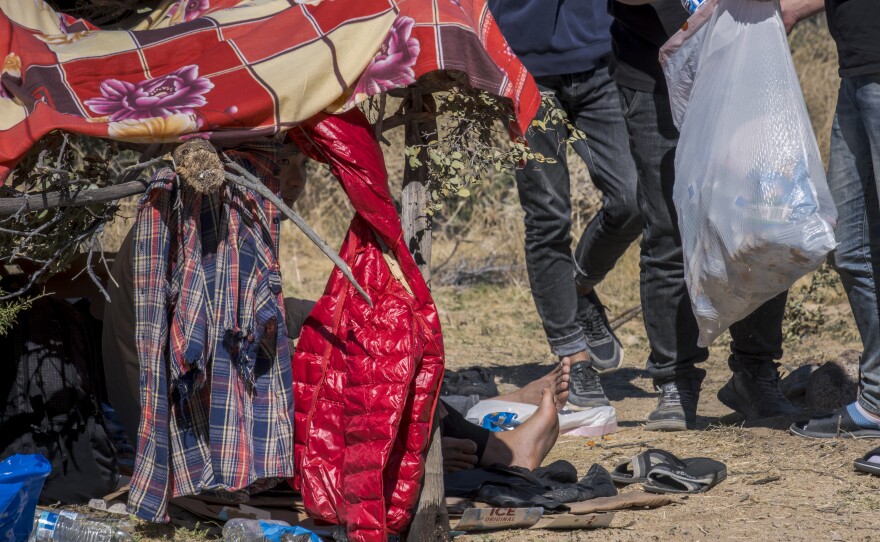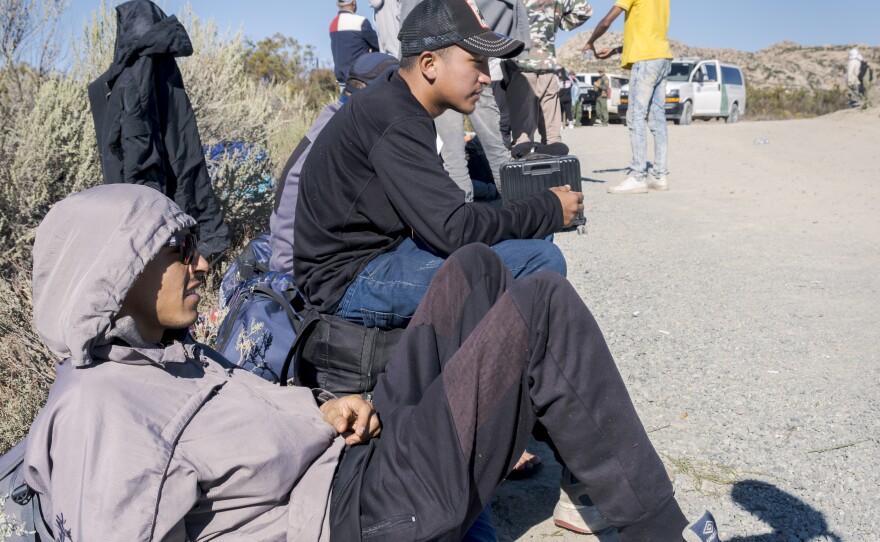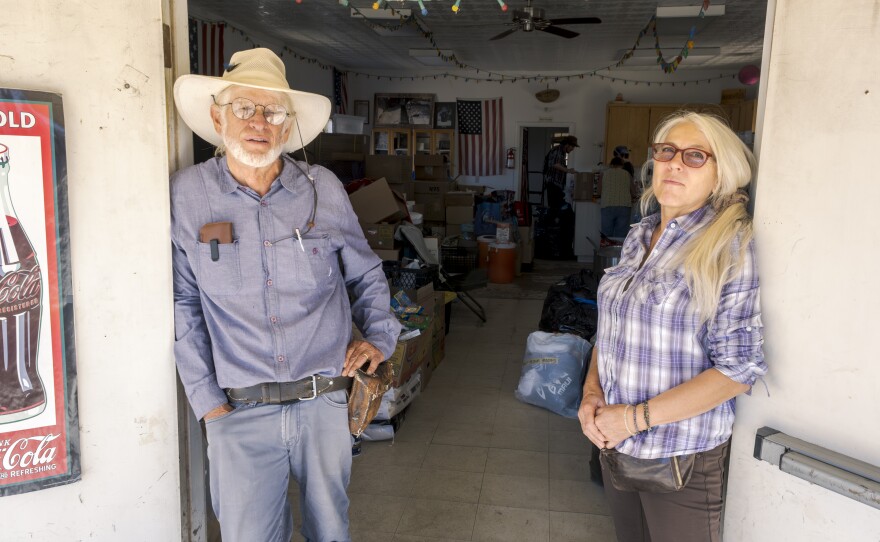It was only midmorning in far east San Diego County Friday, but a Santa Ana condition was already baking the arid landscape
This area, near Jacumba Hot Springs, has become a temporary gathering space for asylum-seekers such as Paulo Gómez Sánchez.
“We come in cars, and we cross the wall and walk,” he told KPBS, just after arriving at an outdoor camp for migrants run by U.S. Customs and Border Protection.

He and thousands of other asylum-seekers have endured temperature swings from the 50s at night to the 90s during the day. Many sleep on the dirt and don't have proper clothing for colder temperatures.
Gómez Sánchez traveled from Colombia and is trying to reunite with his mother and aunt, who live in San Diego. Like many at the site, he was stressed, nervous and confused.
“I hope it's not much time, because it's not easy. We are in the mountain,” he said.

Mutual aid groups say three main holding areas, which have been most recently in operation since mid-September, are “open-air detention sites.”
CBP pushes back on the use of the term — calling them “gathering sites.”
“It started in May, and then it stopped for a few months, and then it started again about two weeks ago,” said Sam Schultz, a Jacumba resident who works with the nonprofit Border Kindness.

Schultz and his wife represent the only outside group consistently providing supplies to the migrants seven days a week.
“We supply almost all of the food and water that goes out there,” Schultz said. “The Border Patrol supplies a very small amount at the best of their abilities ... but they're just not set up for this. So we've been basically 90% of all water and probably 100% of the food.”
Schultz said CBP was also not providing proper medical care. A CBP spokesperson would not agree to an interview but issued a statement:
“The U.S. Border Patrol, San Diego Sector is currently experiencing irregular levels of migration between official ports of entry. This level of migration is spurred by criminal smuggling organizations who continue to exploit vulnerable migrant populations for profit. To address current migration patterns, the San Diego Sector Border Patrol is leveraging all available resources to encounter, transport, and process migrants as expeditiously and safely as possible while simultaneously upholding other vital border security priorities.”
The migrants are coming through gaps in the border wall, Schultz said. CBP detains them in the Jacumba camps for one to three days and marks them with a wristband, before moving them to other centers in San Diego and Riverside counties.
Schultz said the nonprofits providing help were reaching a breaking point.
“We desperately need monetary donations really bad because this is getting out of control. We're at the point where we are stretched so far where we can’t do this much longer the way it is,” he said. “We either need a bunch more money or we need the government to come in with the people that can actually deal with this.”
Schultz added that the situation will become more dire as overnight temperatures grow increasingly cold and local funding and donations dry up.
He said that could be as soon as three to four days.
“I just want to make it clear that we have more people that we are taking care of on the border here than we have in our town. Significantly more,” Schultz said about Jacumba.
“We have a town that last Census track was 550 people," Schultz said. "We are looking at least 300 people a day moving through here. And that's just the ones that move through and don't spend the night or two nights or three nights. We can't deal with this.”








